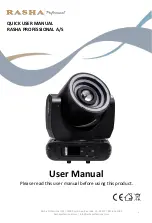
Personal Safety with the Summit
Spectrometer
While the Nicolet Summit Spectrometer is designed to be a safe instrument, you should take a few
precautions to protect yourself from potential hazards that can arise during normal use and
maintenance.
CAUTION
This guide is an introduction to potential dangers that you should be
aware of, but it is not a comprehensive guide. Before using the instru-
ment, see the Site and Safety Information for the spectrometer for a full
description of these potential hazards.
Potential Hazards during Normal Use
During normal use, most hazards are due to following sources:
l
Potentially hazardous samples and solvents
l
Parts of the spectrometer that are hot or emit heat
l
The instrument’s laser
You can avoid possibly harming yourself or damaging the instrument by understanding potential
hazards and by taking a few precautions.
Hazardous Samples and Solvents
Take special precautions if you are using or plan to measure potentially hazardous samples or solvents,
such as pressurized gases or corrosive or flammable solvents.
USE PROPER VENTILATION
There are no special ventilation requirements for your spectrometer, but you may need additional
ventilation during certain types of analysis. Ensure that you have proper ventilation if you will be
analyzing highly toxic samples, dissolving your samples in solvents that may interact with the infrared
source, or sampling flammable gases.
The pyrolysis of solvents containing halogenated hydrocarbons may produce hydrochloric acid (HCl),
hydroflouric acic (HF), or phosgene (COCl2).
Thermo Scientific
Nicolet Summit LITE FTIR Spectrometer User Guide
9
Get Started with Your Nicolet Summit Spectrometer













































